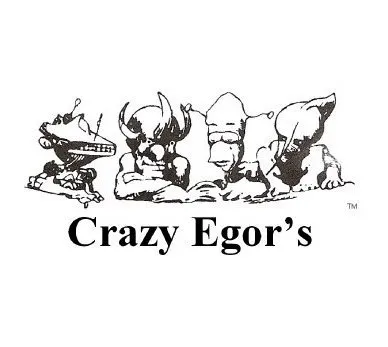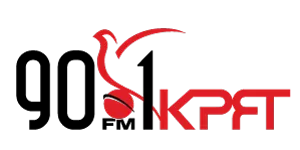With rare exceptions, I played essentially no games during my seven years in grad school, except during vacations back in KY or at a convention. I did get into Minesweeper and Warcraft 2 for a few weeks each, as stress relievers, but they had no social component and were not very satisfying. I spent quite a bit of time at Crazy Egor's Discount Game Warehouse, browsing and often buying used game supplements that I wrote additional scenarios for but never ran.
It wasn't until my post-doc in Houston that I found an enthusiastic and well-organized game club at Rice University, which was across the street from the Texas Medical Center where I worked. Their yearly student-run Owlcons were a lot of fun, and I began running games at those cons as well as playing. I still never joined a campaign. Too big a time commitment.
I eventually quit that post-doc to teach.
Finding a first job took almost a year, which I spent at home with my baby son, watching Blue's Clues over and over again, reading, and writing. Much of that writing was job applications, where I had to stay factual but still required some creativity. I also did a lot of reading into pedagogy to get ideas for the inevitable “Philosophy of Teaching” statements that accompanied applications to liberal arts colleges (where I never got an interview, and rarely even a rejection letter). I did write some short pieces of fiction during that year, a couple of which I submitted, but none of which were published. I also reviewed a few stories for Andrew Burt's Critters.org online critique group, but never felt confident enough to post my own work. This is ironic, because at the same time I was writing and recording short science pieces for broadcast on KPFT radio, a nonprofit station a few blocks from my apartment that boasted 100,000 listeners, and never felt even a twinge of anxiety.
Part of my reading during that long job hunt was about using writing to engage students with science. This was both popular science writing, by which I mean science journalism and documentaries, and fiction. This was the period where I found world-builders.org and contact-conference.com, projects that later inspired some of my own work with community college students.
This was also when I started reading about citizen science.
Moving to NC to work at a community college, teaching non-majors for the most part, got me involved with the Audubon Society’s Great Backyard Bird Count (coming up in two weeks!) and eventually with some educational research and a volunteer position on the Board of the local chapter. I’m not a trained ecologist, but one of the things I discovered is that most people know so little that as long as I know more than they do about some particular topic, the gradient of knowledge flows the right way. And if they know more than me about some other related topic, I get to learn something (bonus!).
Believe it or not, there are SF stories about this kind of thing.
http://escapepod.org/2009/08/06/ep210-the-hastillan-weed/
I started using Escape Pod stories as homework in my classes. If students wouldn’t read (which they mostly wouldn’t), maybe they would listen while they were in the car, or at the gym. It became more and more about using their narcissism to hook them, rather than simply demanding they give it up and participate in the world. That line of thought led from guessing to what would hook them to asking them what they wanted to study. As a tenure-track professor I had more flexibility in choosing topics and methods. The problem is that most college students honestly don’t know what they want to study, partly because the way they have been raised – overscheduled and overprotected – means that they have had very little practice in making decisions for themselves. What I discovered is that the practice of asking by itself goes a long way towards establishing some goodwill and credibility, which makes room for that knowledge gradient I mentioned earlier. Suggestions work a lot better with that age group than demands. Even a constrained list of options works reasonably well.
An even bigger problem is the paired assumptions that work is by definition not fun and that school is by definition not real. Therefore schoolwork that is both exciting and affects the real world is doubly impossible. Before I taught a homebrew course called Analytical Reasoning for four years, I would have had a much more difficult time seeing the logical structure of those biases. I’m still working on how to address them in practical terms from outside the system.

